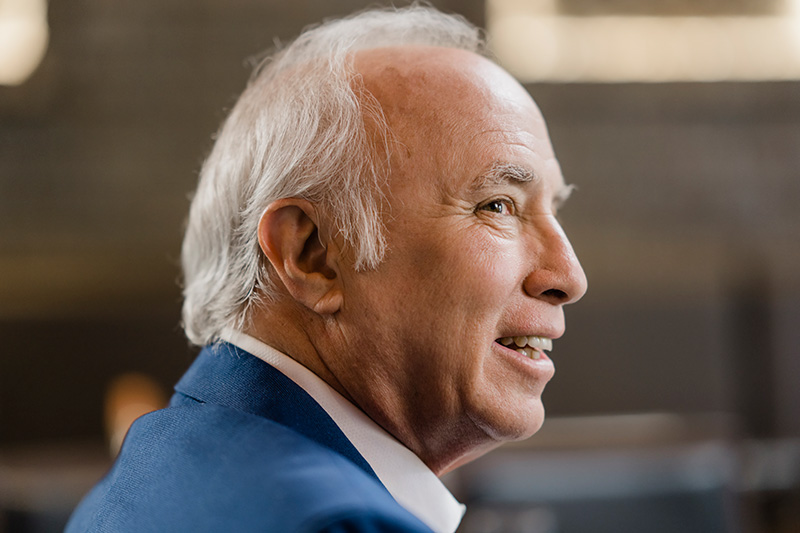As we journey through life, our bodies undergo various changes, especially our hearing. To navigate these changes and enhance the overall quality of life, many individuals turn to hearing aids for support and assistance. However, an important question arises – how long do hearing aids last? A prevailing belief among many is that the typical lifespan of hearing aids ranges from 3 to 5 years.
In this blog, we’ll explore why hearing aids last up to 5 years and some tips on what to do when it’s time to update them.
Why do hearing aids only last 3 to 5 years?
Hearing aids are essentially little computers made up of three basic parts: an amplifier, a speaker, and a microphone. However, just like other products enhanced with technology, several factors contribute to their short lifespan. It includes the following:
Wear and tear: With regular use, hearing aids are naturally exposed to sweat, oils, and other debris which can impact their performance over time. While hearing aids are mostly durable and robust, using them daily will inevitably affect their quality.
Technological advances: Now more than ever, the technological advancements of hearing aids are flourishing. Individual wearers have the opportunity to choose specific levels of personalization to enhance their daily lives. Tuning your devices with greater precision is all thanks to accessories, smartphones, and other capabilities, like Bluetooth compatibility. However, similar to other tech advancements, constant updates create a better-performing device. Therefore, wearers are often encouraged to upgrade to newer versions.
Maintenance and care: Hearing aids don’t require much upkeep to avoid repairs, replacement, or breakdowns. However, without regular professional check-ups and daily cleaning, your hearing aids aren’t guaranteed to last many years.
How often should you replace or upgrade your hearing aids?
So you’ve taken good care of your hearing aids these past 5 years but they don’t work “like new” anymore? This is a prime example many wearers should take into account when considering upgrading their hearing aids. Also, because they’re complex devices, understanding when it’s time to get a new pair is vital.
5 reasons to upgrade to new hearing aids
From internal to external contributing factors, here are some reasons why you might want to consider switching up your devices:
Your hearing changes.
Hearing loss isn’t necessarily always linked to aging. Several factors contribute to losing hearing abilities like constant loud music, a buildup of earwax, ear infections, and even a ruptured eardrum. Nonetheless, if you notice that your current hearing aid is not working like before, it might be a result of changes in your hearing. In case your hearing has worsened beyond the capabilities of your current device, opting for a more potent hearing aid may help.
Your hearing aids are older than 5 years.
It could be time to upgrade your hearing aids if you’ve had them for longer than five years. Manufacturers frequently stop making replacement parts for older versions of hearing aids as technology advances. Repairing these older hearing aids becomes more difficult, if not impossible, as a result of this discontinuation. By upgrading to newer models with the newest technology you’re guaranteed a smoother experience.
Your old pair of hearing aids no longer solve a current concern.
Over the past decade or so, there have been significant advancements in hearing device technology.
The problems you may have dealt with years ago are now something your current device can’t solve with its outdated technology. That’s why hearing aids today have many automatic features like:
- Turning directionality and noise reduction on and off.
- Classifying your environment (eg., car, noisy restaurant, or quiet office).
- Making adjustments to the hearing aid settings.
All these make life so much easier and enjoyable at the same time, which is something older devices tend to impede.
You have a significant change in lifestyle, job, or daily activity levels.
Whether you have a new hobby or you’re starting your own business, adjusting to new surroundings and habits calls for appropriate hearing aids. Let’s say you started taking daily bike rides around the neighborhood but your helmet won’t fit above your hearing aids. The solution? ITE (in-the-ear) hearing aids. With a proper device to cater to all your needs, living a normal life becomes more enjoyable.
Your hearing aids have had their fair share of repairs.
No matter how old the device is, a hearing aid with a history of frequent repairs can lead to unnecessary frustration. Not only is it frustrating to have to keep taking it to the shop to fix it, but it can become a significant financial burden, particularly once the warranty expires.
How can I care for my hearing aids?
Proper care and maintenance of your hearing aids will maximize their lifespan, performance, and quality. Here are some essential tips to add to your routine:
- Clean them regularly: Follow all manufacturer instructions for cleaning your hearing aids. Earwax and ear drainage can accumulate and ruin them, so regular cleaning is vital.
- Turn them off: When you aren’t using them, turn them off. Doing this will conserve battery life and prevent unnecessary wear on the device.
- Replace dead batteries immediately: Avoid uninterrupted usage by always having functioning batteries.
- Keep it away from heat and moisture: Avoid exposing your hearing aids to excessive heat or moisture, as these elements can damage delicate components. Remove them before showering, swimming, or using hair care products like hairspray.
—
Feeling like your hearing aids are giving out? Schedule a free hearing test with Beltone Tristate to find your ideal solution today!

